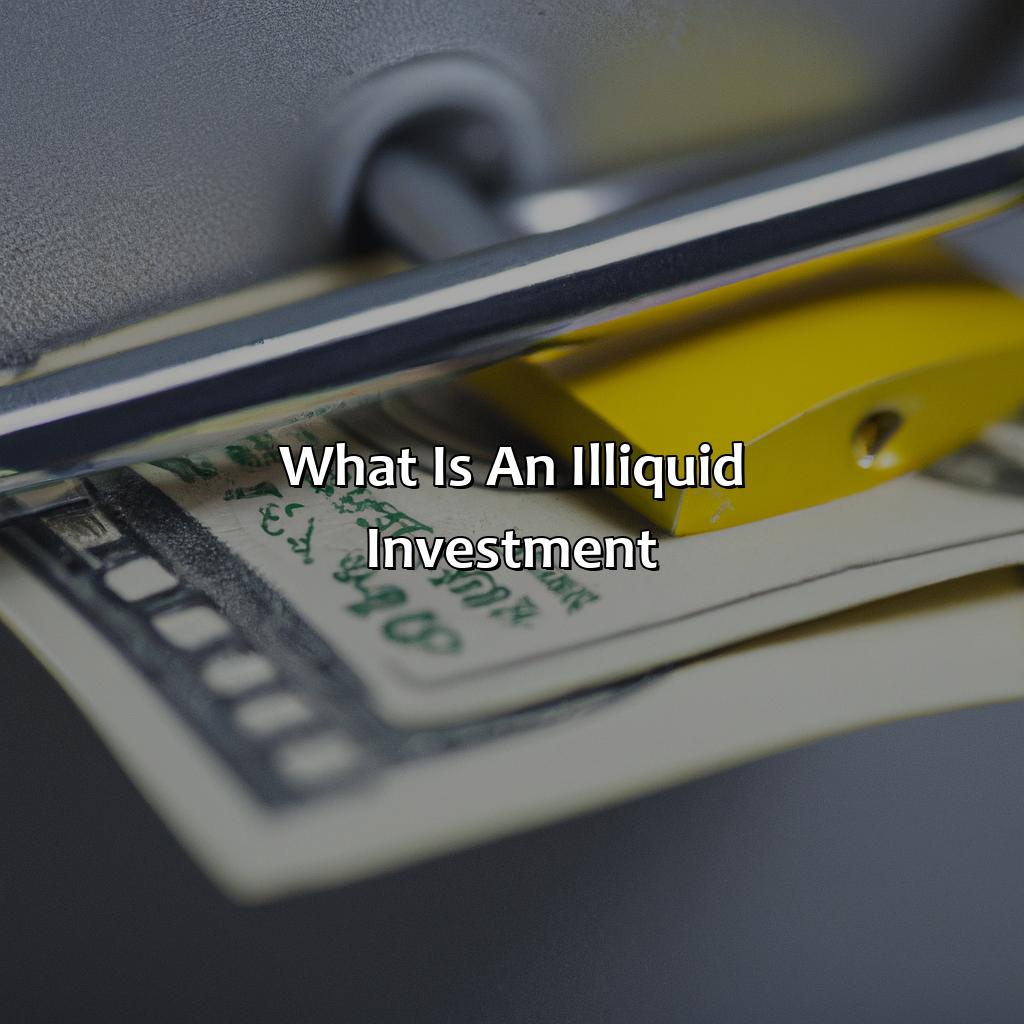What Is An Illiquid Investment?
Key Takeaway:
- An illiquid investment refers to an asset that cannot be easily sold for cash without incurring a significant loss or a long waiting period. Common examples of illiquid investments include real estate, private equity, and collectibles.
- The factors that make an investment illiquid include low trade volume, longer time to sell, and limited access to buyers. These factors not only reduce the ease and speed of sale, but may also reduce the value of the investment.
- The risks associated with illiquid investments include reduced flexibility, limited diversification, higher transaction costs, market fluctuations, and a potential lack of transparency. As such, it is important to carefully weigh the benefits and risks before investing in an illiquid asset.
Are you looking for a way to diversify your investments? Illiquid investments may be the answer. However, understanding what illiquid investments are and how they work is key to deciding if they are right for you. Let’s explore what illiquid investments are and how they can benefit your portfolio.
Definition of Illiquid Investment
Illiquid investments refer to assets that cannot be easily converted into cash without significantly reducing their value. These are typically investments that cannot be sold quickly or without incurring significant transaction costs, or lack a ready market of buyers and sellers. Such assets include real estate, private equity, hedge funds, and certain types of bonds.
In essence, illiquid investments are those that require long holding periods, often over several years, and are typically associated with high risk and high returns. These investments may require a considerable amount of due diligence, and investors may need to have specialized knowledge or expertise to evaluate them properly.
It is essential to note that illiquid investments may not be suitable for all investors, as they pose unique challenges, and their performance may be subject to various factors such as economic cycles and market conditions.
One example of the consequences of investing in illiquid assets can be seen in the 2008 financial crisis, where investors in private equity and real estate funds experienced substantial losses. This is because the economic downturn significantly reduced the value of the assets, and investors could not liquidate their positions quickly.
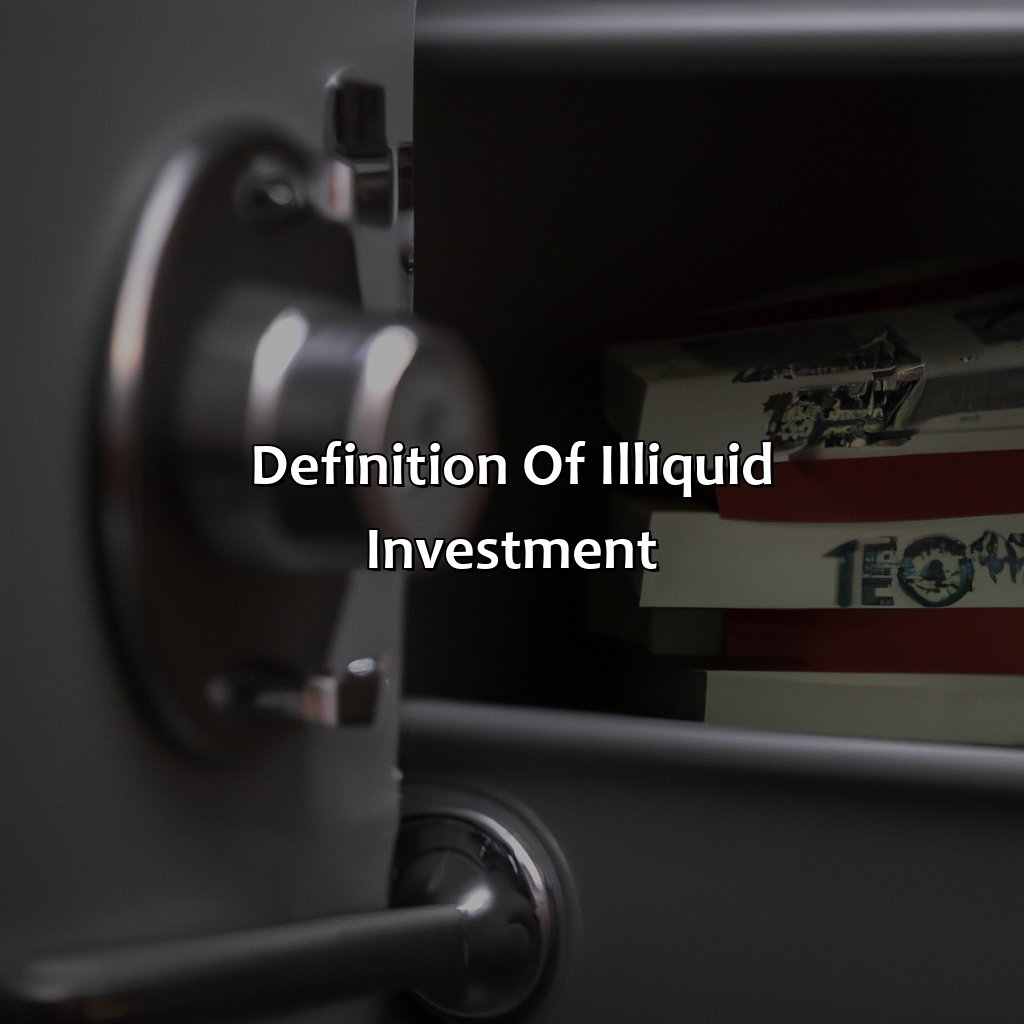
Image credits: retiregenz.com by David Jones
Factors that Make an Investment Illiquid
Investments become illiquid due to certain characteristics that restrict the ease of buying or selling them. Such features can result from the investment’s nature, the market conditions, or the investor’s preferences.
For instance, investments with low trading volumes or long holding periods make them hard to sell or exit rapidly, making them illiquid. Similarly, certain market circumstances such as bearish markets, tighter regulatory policies, or changes in investor sentiments can reduce the marketability and liquidity of investments.
Moreover, investors who have a higher risk appetite and a long-term investment horizon are more likely to put their money into less liquid assets like real estate or private equity.
In some cases, investments become illiquid due to unique circumstances. A story that illustrates this is that of a renowned actor who invested millions of dollars in a production company that manufactured films. However, due to an ongoing lawsuit, the company’s operations were suspended, and the actor was unable to liquidate the investment. Despite being a valuable asset, the lawsuit rendered it unmarketable, leading to an illiquid investment.
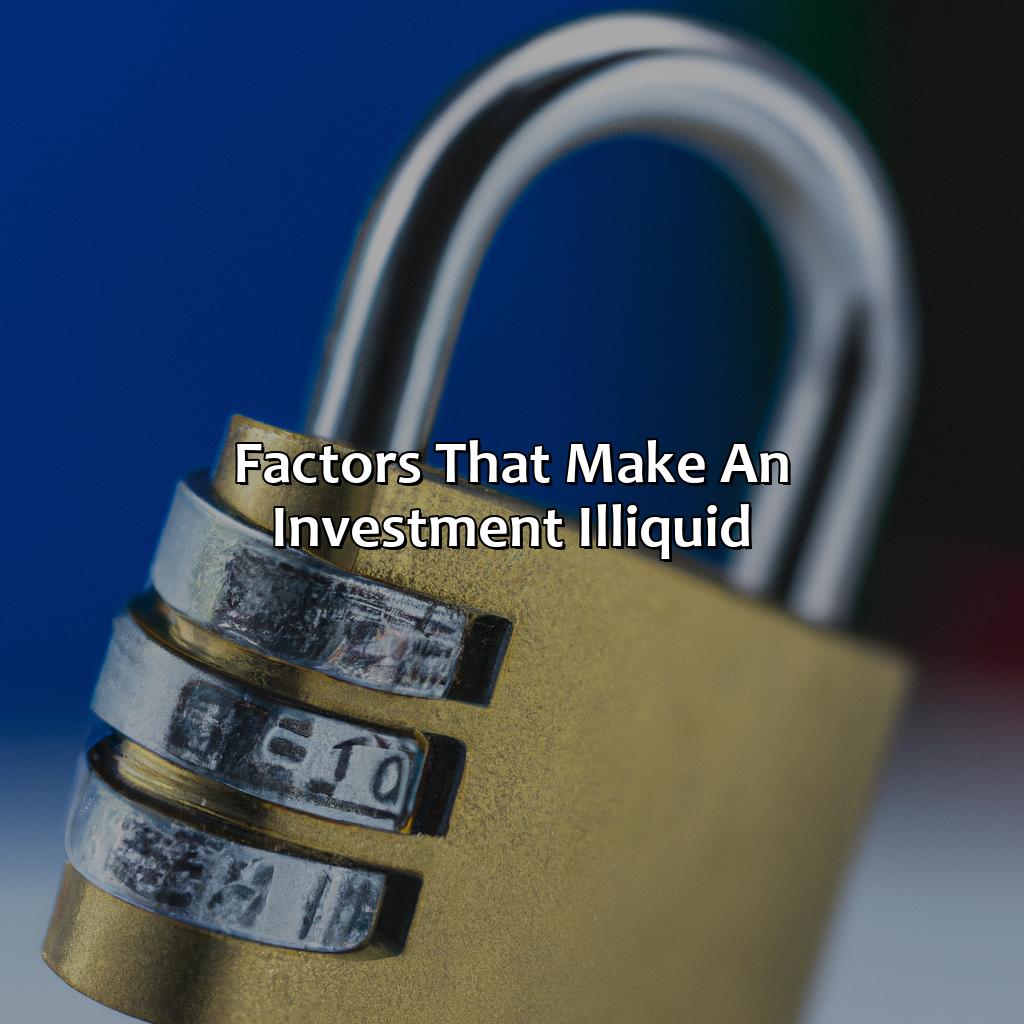
Image credits: retiregenz.com by David Duncun
Examples of Illiquid Investments
Illiquid investments refer to assets or securities that cannot be easily converted into cash without substantial loss of value. These types of investments are characterized by a lack of marketability and low trading volume. Here are some examples of illiquid investments:
- Real Estate: Properties, such as land, buildings, or houses, are examples of illiquid investments. Real estate investments can be difficult to sell quickly, and buyers may be scarce, leading to a significant reduction in value.
- Private Equity: Investments made into non-publicly traded companies or start-ups are considered illiquid. Private equity funds can take several years to yield results and are not readily tradable on a secondary market.
- Art and Collectibles: Obtaining art and collectibles can be challenging due to the rarity of the item. Furthermore, their value depends on the opinion of willing buyers to pay for them, which can change over time. Therefore, selling such assets usually requires time, considerable effort, and expertise.
Investing in illiquid assets can be attractive, as it bears the potential for high returns in the long term, however, they are high-risk investments as they are not liquidated easily. It’s essential to conduct extensive research and analysis before investing in such assets to mitigate risks.
For instance, Investopedia suggests, “Investors should only invest in illiquid assets if they have sufficient financial resources and are able to bear the risks associated with the investment. Investors must also consider the liquidity of their overall portfolio, as too many illiquid assets can significantly impact cash flow during economic downturns.”
A popular example of investing in an illiquid asset is the rise of Bitcoin over the years. In 2010, a programmer used 10,000 Bitcoins to order two pizzas, and by 2021, one Bitcoin was worth over $40,000. Holding onto Bitcoin for over a decade is an example of an investment that has gained value tremendously but has no immediate market for liquidation.
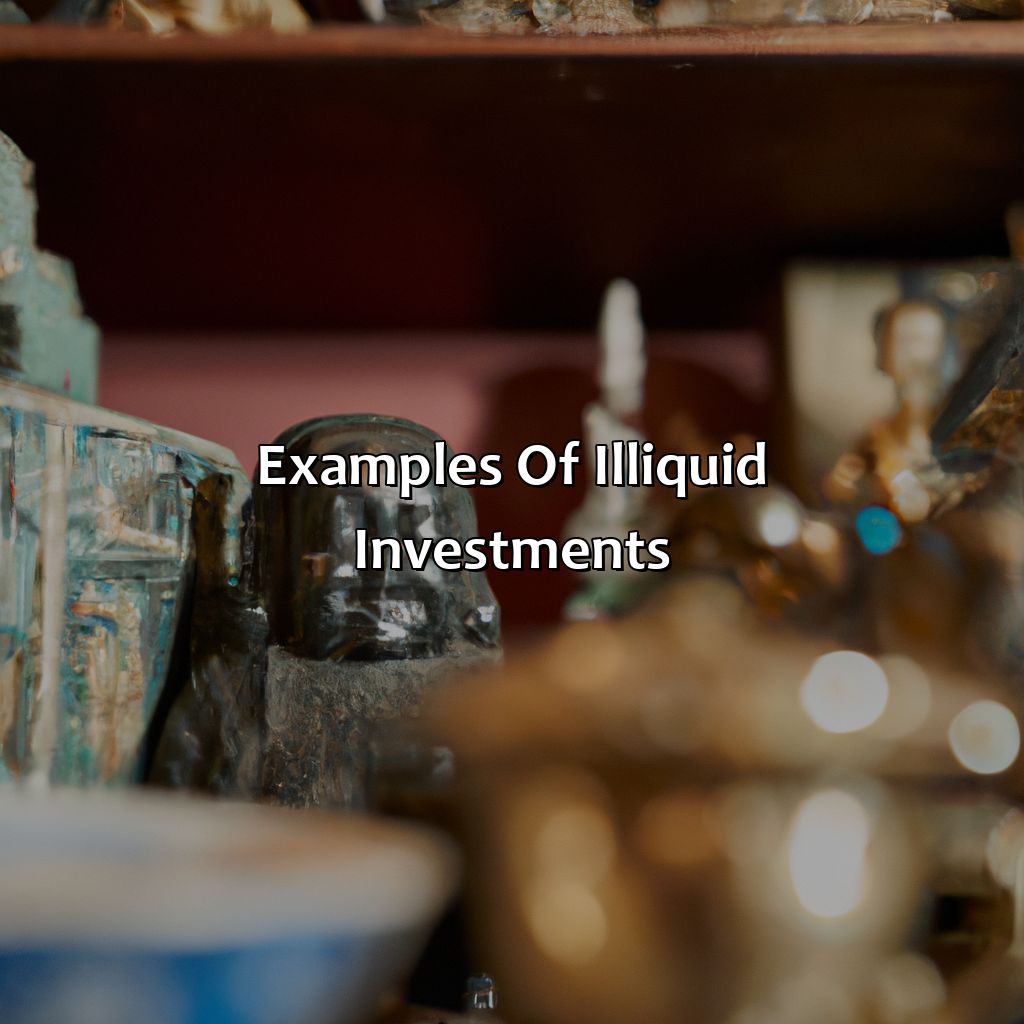
Image credits: retiregenz.com by Harry Jones
Risks of Illiquid Investments
Illiquid investments can bring about potential risks and challenges for investors. These types of investments are typically difficult to trade quickly, and their value is usually uncertain. The risks of illiquid investments can include a lack of diversification, difficulty in determining fair value, potential for fraud, and limited access to capital.
Investors who choose to invest in illiquid assets need to be aware of these risks and consider them carefully before investing. Illiquid investments require a long-term commitment, which may result in an investor being unable to access their funds for a significant period.
It is important to conduct extensive due diligence before investing in an illiquid asset, understand the terms and conditions of the investment, and have a clear understanding of the expected returns.
Additionally, investors should have a well-diversified portfolio that includes both liquid and illiquid investments. This can help mitigate some of the risks associated with illiquid investments. It is also vital to have an exit strategy in place to manage the potential negative impact of market fluctuations on the value of the asset.
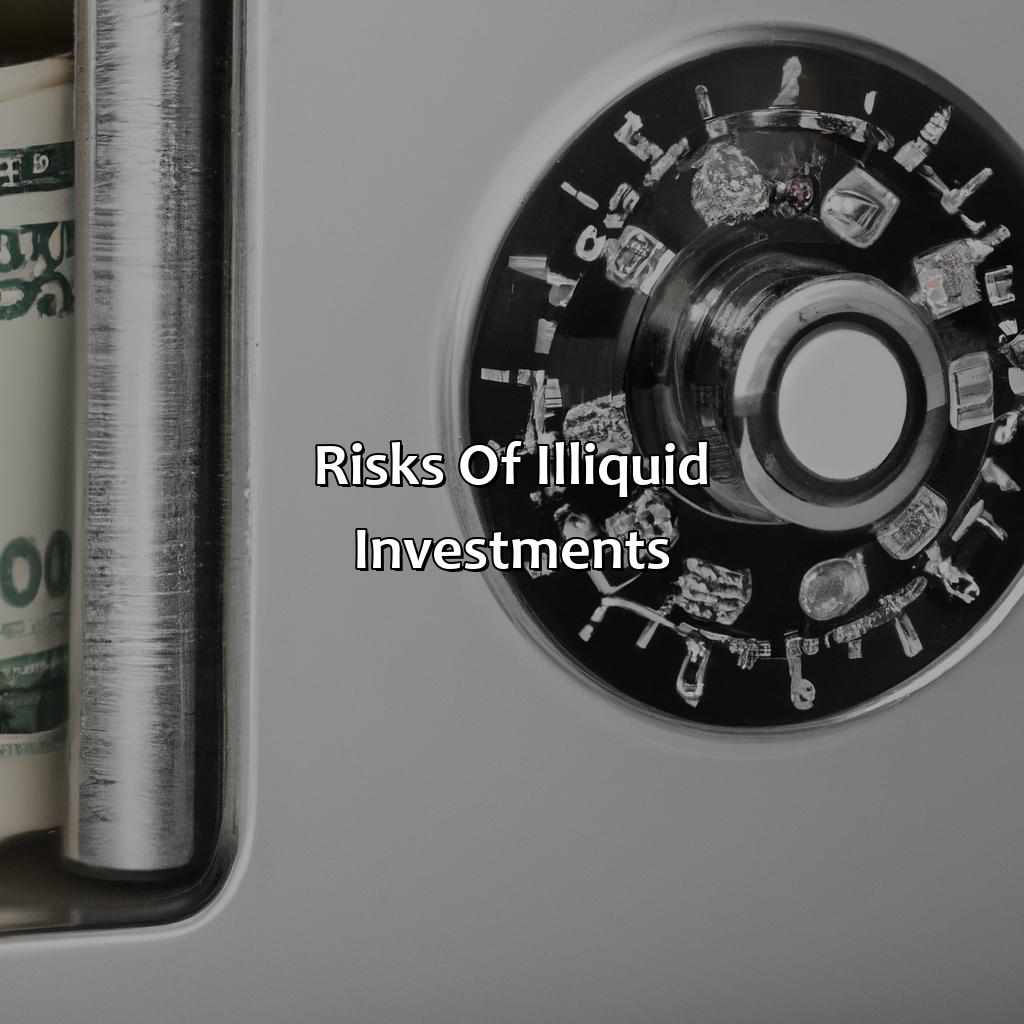
Image credits: retiregenz.com by James Duncun
Five Facts About Illiquid Investments:
- ✅ Illiquid investments are assets that cannot be easily sold or converted to cash without a substantial loss in value. (Source: The Balance)
- ✅ Examples of illiquid investments include real estate, private equity, art, and collectibles. (Source: Investopedia)
- ✅ Illiquid investments often require a long holding period before they can be sold, which can tie up capital and limit liquidity. (Source: Forbes)
- ✅ Illiquid investments are typically riskier than liquid investments due to their lack of marketability, transparency, and ease of valuation. (Source: The Motley Fool)
- ✅ Illiquid investments may offer higher returns than liquid investments, but they require a higher level of due diligence and risk management. (Source: U.S. Securities and Exchange Commission)
FAQs about What Is An Illiquid Investment?
What is an illiquid investment?
An illiquid investment refers to an investment that cannot be easily sold or converted into cash without incurring a significant loss in value or incurring a substantial delay in the process.
What are examples of illiquid investments?
Some examples of illiquid investments include real estate, private equity, artwork, collectibles, and certain types of hedge funds or mutual funds.
What are the risks associated with illiquid investments?
The main risks associated with illiquid investments are limited liquidity, uncertain valuations, and lack of transparency. Illiquid investments also tend to be more susceptible to market fluctuations, economic downturns, and unexpected events.
What are the benefits of illiquid investments?
The benefits of illiquid investments include potentially high returns, diversification from traditional investments, and the ability to invest in unique opportunities that are not available to the general public.
Who typically invests in illiquid investments?
Investors who are willing to take on more risk and have a longer time horizon typically invest in illiquid investments. This can include high-net-worth individuals, institutional investors, and venture capitalists.
How can one manage the risks associated with illiquid investments?
One way to manage the risks associated with illiquid investments is to carefully research and analyze the investment opportunity before committing any funds. It is also important to diversify one’s portfolio and have a long-term investment horizon to allow for potential fluctuations in value. Additionally, having a predetermined exit strategy can help minimize any potential losses.
